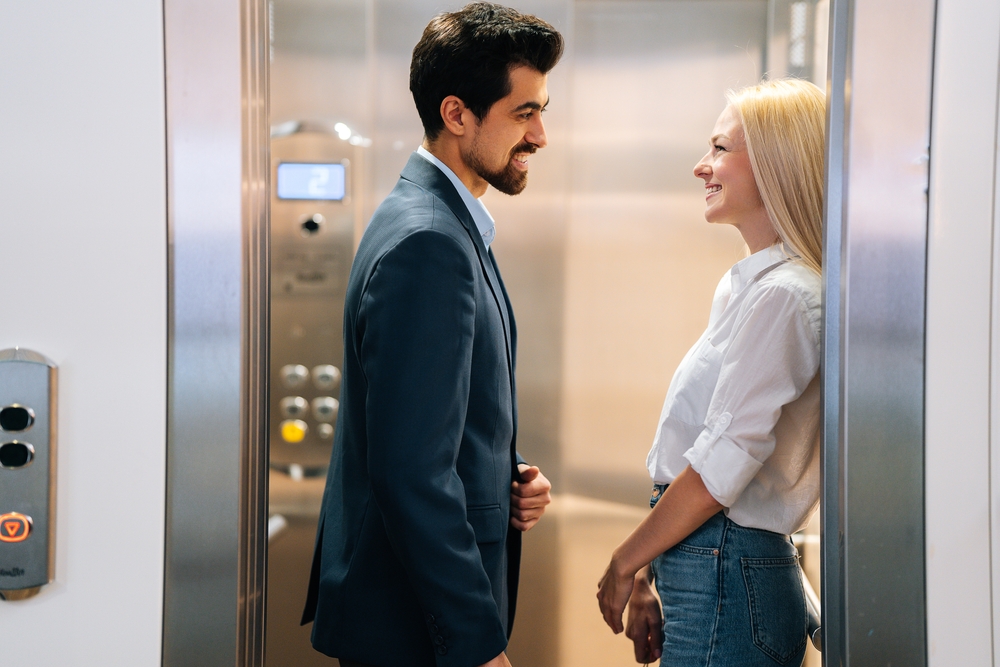Sometimes, people feel a certain way and don’t vocalize it. The intentions can be good or bad, but how are you supposed to know what they really mean? Use this guide to decode someone’s true feelings through body language and hone your communication skills.
1. Their eyes crinkle when they smile: they’re happy.

A slight smile that’s mostly meant to be polite won’t reach the eyes. It only lasts for a second because the person isn’t fully engaged or enjoying the conversation. If you’re talking with someone and their smile makes their eyes crinkle, it’s a full smile. They’re likely very happy and potentially even enjoying a true laugh.
2. They cross their arms while talking: they’re uncomfortable

Your body language is an essential form of communication, even when you’re in a video call with someone. Arms play a significant role in what your body communicates. Crossing your arms might be an instinctive reaction when you’re shifting in your seat, but it conveys that you’re probably uncomfortable in a conversation. When someone makes this motion while chatting with you, it might be best to ask if you’ve offended them or switch the topic of conversation.
3. They get a blank look in their eyes: they’re bored.
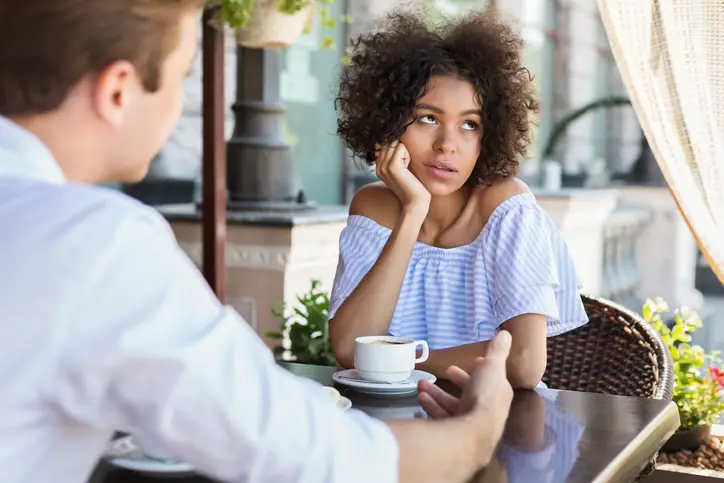
Imagine a time when you were listening to someone speak and your mind began to wander. You probably started thinking about all the things you still had to do that day or what you wished you were doing instead. Whether you were enjoying the conversation or not, distracting thoughts happen. At that moment, the eyes take on a blank appearance. If you notice someone with the same empty gaze, they’re likely bored and thinking of other things.
4. They maintain eye contact: they’re interested.
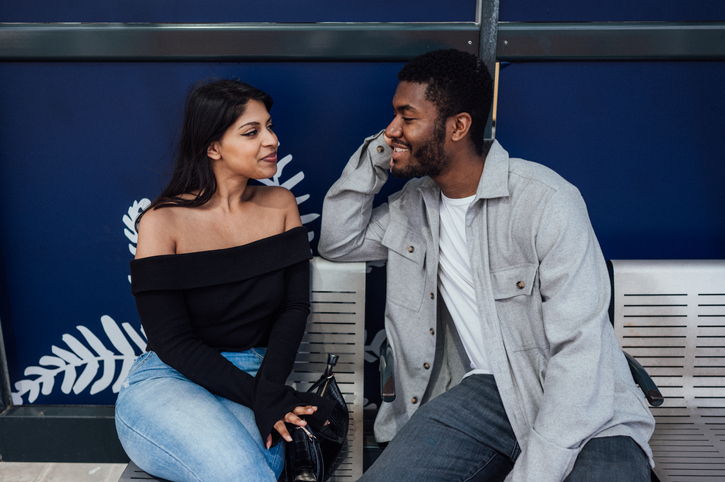
Saying that the eyes are the windows into your soul might sound dramatic, but they reveal inner emotions pretty clearly. Eye contact represents someone’s engagement with the conversation. If someone’s listening to you without looking away, they’re paying close attention. Their interest could indicate a couple of things. They might have romantic feelings toward you if the conversation’s flirty. They could also want to learn from you if you’re talking from a mentorship perspective. Consider the setting to dig deeper into their interest.
5. Their mouth scrunches to the side: they’re confused.

Confusion causes a few different body language reactions. Someone might tilt their head to the side and shake their head. If they want to make their confusion more subtle, they’ll likely scrunch their mouth like they’re puckering and twist it to one side. It could mean they’re slightly embarrassed about their confusion or don’t want to offend you before asking for clarification.
6. They blink rapidly: they’re getting upset.
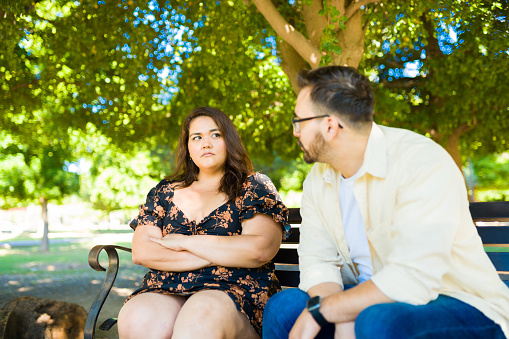
Blinking is an automatic bodily function that’s necessary for keeping your eyes hydrated. It’s also a sign that someone’s getting upset. Someone who’s getting angry might start blinking quickly to keep up with what you’re saying while formulating their own opinions. They could also be trying to hold back tears. Context is key to understanding what rapid blinking could mean if the person isn’t dealing with something external, like accidentally getting an eyelash in their eye.
7. They cross their legs: they’re focused.

Sitting with your legs crossed doesn’t always indicate an underlying emotion. It depends on what’s happening in a conversation and other related body language. If you’re chatting with a friend who crosses their legs and leans forward, they’re focusing on your captivating conversation. Crossed legs and distracted eyes would mean they’re bored. Pay attention to a person’s total body language before deciphering this more general stance.
8. They’re very still: they’re relaxed.
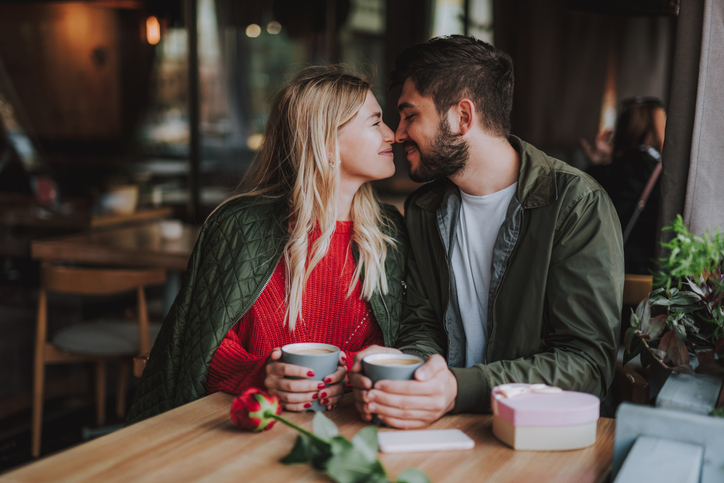
Relaxed people feel little to no stress. It’s much easier for them to let their mind wander. Their bodily sensations are much lower due to their relaxed nervous system, so they sit still for long periods. Someone who’s very still while hanging out with you, talking or watching a movie is likely in a laid-back frame of mind.
9. They’re fidgeting with their hands or feet: they’re anxious.
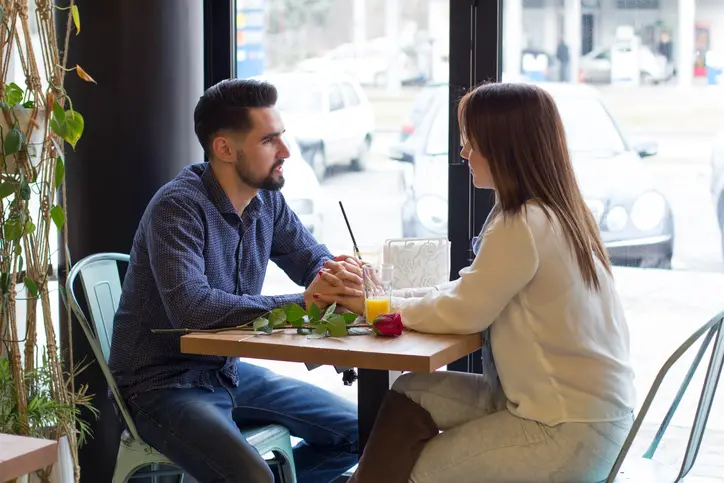
Anxiety manifests in numerous ways, but many people start fidgeting when their nervous system gets more active. It’s a way to get your muscles moving and relieve the tension building due to your stress. It’s also a passive way to communicate that you’re anxious about the situation or setting.
If someone around you is anxious, avoid telling them to relax or let their anxiety go. Instead, let them know you’re noticing they might be anxious and ask what’s on their mind. If you give them a safe space to vent, they’ll start feeling better before you find a solution to their worries.
10. They’re blushing: they’re happy.

Blushing during a conversation is a quick way the body communicates joy. What that joy means may vary. You probably blush when someone gives you an unexpected compliment because it boosts your self-esteem. You might also blush when you’re talking with a crush due to your romantic feelings toward them.
11. They’re gesturing with open palms: they’re communicating honesty.

Imagine someone saying, “I’m telling the truth!” You might picture them holding their hands up with their palms facing toward the ceiling. The gesture is an attempt to communicate their honesty in more than just words. Whether it’s true or not is a different story. If you’re watching for this type of body language, you’re probably trying to get an honest answer to strengthen a romantic relationship or friendship. Remember to address your intentions and hopes with words before assumptions potentially make things worse.
12. They touch their nose repeatedly while talking: they’re being dishonest.

There’s no scientific proof that touching your nose means you’re lying. Still, fidgeting is a sign that someone’s uncomfortable. Most people aren’t going to have an easy time lying. They’ll either feel bad about their dishonesty or feel stressed that you’ll see through them. Touching the face repeatedly, like itching their nose, could reveal their discomfort and suggest that they’re lying.
13. They’re standing with both hands on their hips: they’re feeling defensive.

Getting defensive can be a self-soothing instinct for people who haven’t worked through past emotions or traumas. When someone feels defensive, they might make themselves appear bigger. Standing with your hands on your hips widens your torso and makes you stand at attention. Even if the other person in the conversation doesn’t find it intimidating, it’s a clear sign that you’re upset and trying to defend your point of view.
14. They’re keeping their body turned away from you: they’re uninterested.
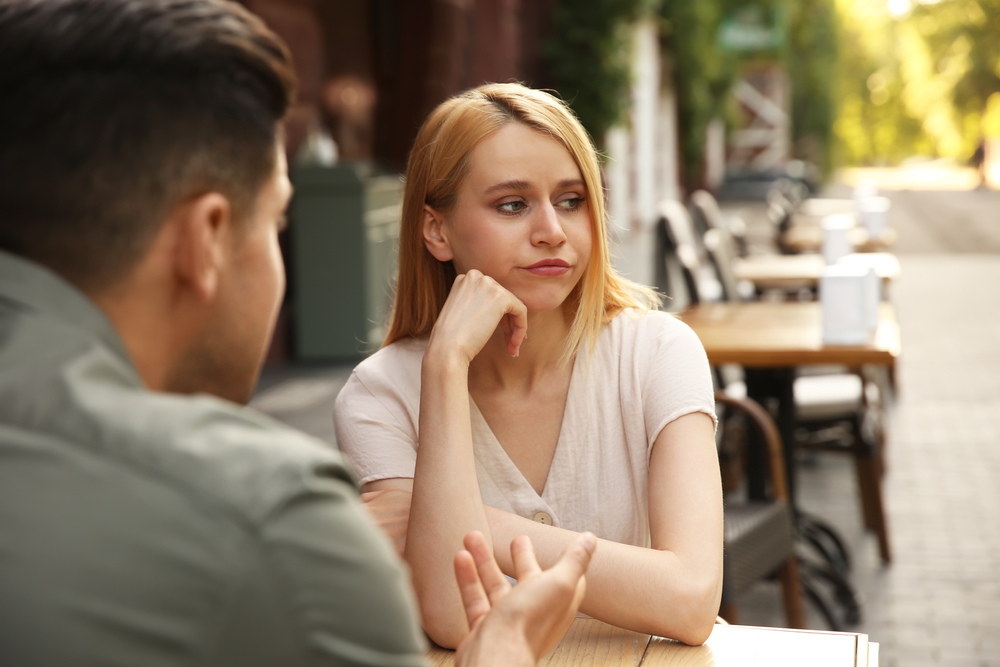
If someone comes up to your desk at work, you’d swivel your chair toward them to give them your undivided attention. If you only glanced their way, it would communicate that you’ll listen, but you’re busy or uninterested. Watch for this body language before starting an important conversation with someone. Returning to talk with them later might be easier for everyone.
15. Their posture is stiff: they’re scared.

When a conversation or interaction develops a threatening undertone, someone’s physical response might be freezing in place. It could mean they’re unsure if they’re safe to leave. It might also indicate their intention to placate the other person until the threat is gone. If you notice someone getting stiff during a conversation, it’s always a good idea to ask if they’re okay.
Enjoy this piece? Give it a like and follow PsychLove on MSN for more!

